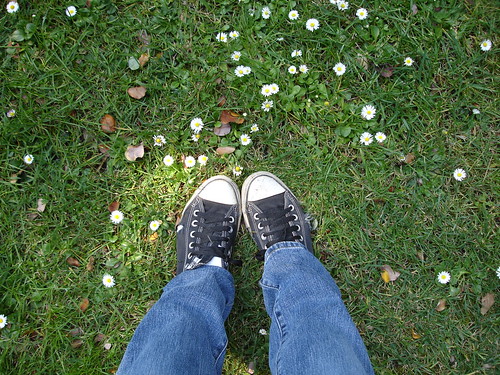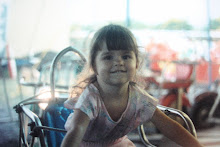The Hostellers Life (or, What Happened on the trip to La Serena)
We (we, of course, being Alicia and I: friends and quickly becoming favorite traveling buddies) started our journey to La Serena on a whim. As dinner trailed to an end and the urging of our companions and fellow Hawaiians reached a fever pitch, we came to the sad realization that a weekend alone in Vina del Mar would fall short of the spectacular, lifechanging experience that we so craved in Chile.
“Alright, they’re going then!” And so it was: we bought our bus tickets that very night, packed our backpacks and prepared to leave for La Serena the next morning.
La Serena: heralded in my Lonely Planet guidebook as being the second-oldest city in Chile, humble home of 29 churches, positioned on the Northern Chilean seaside. Most popular in the summertime months of January and February, but cheaper in the off-season. A perfect trip for our long weekend? So we thought.
The six hours on the bus went by quickly, as our freshly-charged iPods composed the soundtrack to our excitement and anticipation. But as darkness fell and, now seven, eight hours into our journey, we realized that we were not going to get to La Serena on time. Furthermore, our friends were already up there, at a remote camping and surf spot an hour away from the bus terminal. What to do? We resigned ourselves to a night in a hostel and a prompt trip to the beach the following day.
We finally found lodging at a humble hospedaje after three of the Lonely Planet recommended hostels turned us away. Adriana, the plump little senora who owned the place and assured us a nice bed with a good bathroom, let us into our room. No backpackers paradise here. Instead, a dusty room with four questionable-looking beds (each vacant) bathed in the glow of the enormous Packard-Bell billboard outside. We paid the 5000 pesos ($10US), killed the ants in the bathroom, stowed our backpacks, and hurried down to the surprisingly modern mall in La Serena for a hurried dinner and a well-earned Corona.
The following day found both of us tired and grouchy (that fucking billboard somehow managed to keep me up all night, its fluorescent glare disturbing my dreams of a warm bed in Vina), determined to find a new place to stay for the night. A few phonecalls later, we found lodging at Maria’s Casa. Maria turned out to be an extremely pleasant and affectionate little woman with a slight hearing problem, who promised us a bed in one of the colorful little cabins around her home for a mere 4500 pesos (about $8US). Score.
Our beach-bound friends left vague text messages with nebulous directions, so we spent the larger part of the day exploring La Serena, which, for the most part, is a shithole. To be fair, La Serena boasts a pretty Japanese garden and some impressive churches, but on a Sunday morning, little to do for the young and American in Chile. We wandered around the Iglesia Catedral, and Alicia educated me on Catholic decorum in such places. We ignored the NO FOTOS POR FAVOR sign, decided God would probably still be okay with us, and snapped a photo of the beautiful stained glass window devoted to Saint Bartholomew, and chanced a photo of the shrine of the Virgen de Guadalupe.
In the main plaza, we were accosted by Gypsies. I’m not even kidding. Gypsies. I thought gypsies were relegated to archaic parts of Europe, but apparently not. Feigning ignorance and no understanding of Spanish whatsoever, we shrugged off the women and endured their muttered curses. Gypsies, despite popular belief, are no fun at all.
After a brief nap at Maria’s clean and friendly abode, we finally decide to chance it and catch a bus to Totoralillo, where are friends are supposed to be. An hour later, we’re dropped off on the side of the Panamerican highway, with vague directions to walk toward the water. The view was absolutely stunning, huge green hills rolling down towards the blue expanse of the Pacific, white-capped waves hugging the rocks and the curvature of the coastline. A truck of friendly Chilenos picks us up and offers us a ride in their flatbed down the dirt road to the campsite. We eagerly accept, and in a matter of minutes, are embracing our long-lost friends that have set up camp at Totoralillo.
Totoralillo is gorgeous. There’s a little hotel and restaurant on the point, and waves break on both sides. To the left, it’s a fast little pointbreak that empties out into a little channel. Beyond that, a fun looking beachbreak that was hosting a surf contest upon our arrival. Music played, friendly Chilean surfers cruised the beach, and our friends thanked us profusely for bringing down a bag of charcoal. Funny how necessity makes the most commonplace things sacred.
Alicia and I split a liter of Heineken, sit on a huge rock and laugh with our friends about our (mis)adventures from the weekend. The sun sets lazily, the wind picks up, and the clouds speed crazily toward the hills. We share our meager meal of bread and cheese (and ham for the meat-eaters). Oddly, my bread tastes like dogfood. I guess it’s a bad idea to buy the cheapest bread you can find in the supermarket (about 700 pesos, around $1.20US). Finally, 6:00 rolls around and Alicia and I bid our farewells, heading back up the dirt road to the highway to catch a bus back to La Serena and Maria’s Casa for the night. We bring along two other weary travelers, Julia and Megan, who’ve had enough of camping and are ready for hostels.
After a good 45 minutes of walking, we finally reach the highway. The busstop. We wait. And wait. And wait. It’s dark along this lonely stretch of the Panamerican highway, and the buses seem to be bypassing the stop. Conversation between the four of us becomes strained as we all become scared: what are we going to do if this bus never comes? By this time, it’s dark and deep into a chilly night. Frantically, I call the bus station in La Serena. In poor Spanish, I explain our predicament and understand that we’re supposed to wait on the side of the highway, because apparently buses don’t go to busstops here. Shit.
We run up to the highway. Stories of kidnapped American girls discovered dead and gagged come to mind. I’m scared. Shit. Fuck, our bus! We wave our arms, scream, run after it, and finally chase it down. On the way back to La Serena.
Alicia and I sleep in the next day, snug in Maria’s Casa, with the sounds of American students also on hiatus awakening us the next morning. We each pancakes at a friendly little restaurant with real coffee (none of this Nescafe stuff that’s so popular in Chile). We pack our stuff, get lost trying to find the bus station, and at long last, are on a bus back to Vina del Mar.
Seven hours later, pulling into the dirty bus station in Vina, I nearly cried for joy at being back in, oddly, what feels like my home. Never before has the dogshit on the sidewalk, the speeding colectivos, the catcalls of weird guys, the highrise buildings all seemed so pleasant. Vina, Vina, preciosa Vina! And it feels so good!
Today, our last day of the long weekend, we ate ice cream in the Plaza and walked along the ocean. We took a ride in a horse-drawn carriage and cruised down the boardwalk on Playa Ocho Norte towards the pier. The people and the bustle and the familiar streets of Vina felt like a welcome homecoming, and Alicia and I relished this sense of sentimentality. A fitting end for the weekend (though I have to mention that, for the first time EVER, we actually saw gypsies in Vina and they, indeed, harassed us for money. Fucking gypsies).
In conclusion, backpacking and hostelling is serious business. I have a newfound respect for the people who make this their bread and butter. As for me, I’ll be sticking to Vina and shorter trips to Santiago for the next few weeks. Although you never know, something wild could come up and I could find myself running from gypsies and stray dogs in the wilds of the Chilean South all too soon.
Oh Chile: and it feels so good.
Monday, August 21, 2006
Subscribe to:
Post Comments (Atom)


No comments:
Post a Comment